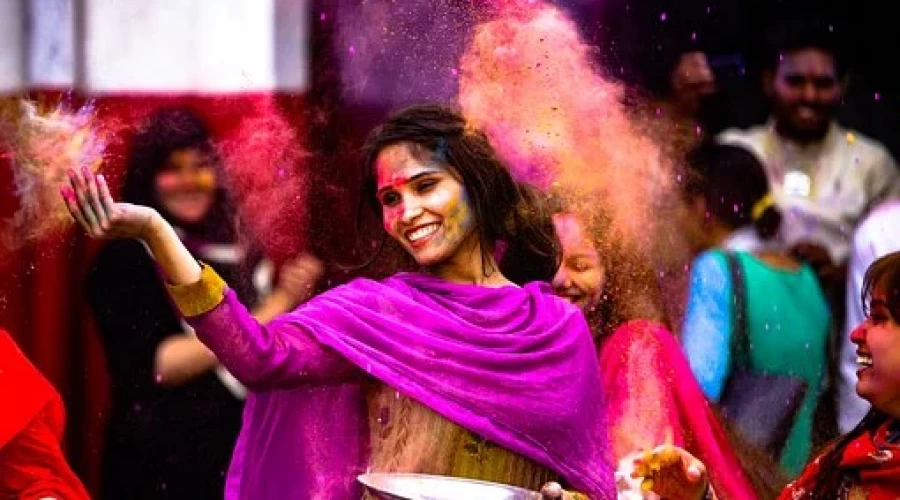Tourism all around the globe is getting a stimulus because there is so much that people wish to observe and experience. Travelling to another nation is one of the promising ways to discover about the culture and life of that nation.

Cultural tourism is a kind of tourism that enables the traveller to partake in regional cultural recreations, like festivals and traditions. Thanks to that, the traveller can relish an authentic cultural exchange with the locals. It furthermore allows local societies to acknowledge their culture as cultural tourism is a prominent driver for development. So, communities go out of their way to glorify and endorse their culture as it renders them different from other communities. As nations acknowledge the significance of cultural tourism and how it can lead local economies, they are concentrating on building cities and villages that can fascinate international travellers to experience and observe culture like never before.
Cultural tourism is inadequate without a tour to India, the country of the Ganges, Taj Mahal, Varanasi, and Red Fort. Each town in India delivers an extraordinary cultural experience to travellers. Whether you wish to encounter the spiritual culture or historical culture, India has a ton to give. It is one of the major motivations that individuals from All across the world horde to India. One can tour Varanasi to encounter Hinduism or devour time in Bodh Gaya, the small town in Bihar where Lord Buddha acquired enlightenment. The craft of weaving in Rajasthan and saree weaving in Andhra Pradesh similarly deliver understandings into the local culture.

Cultural tourism India is the prominent element behind India's meteoric growth in the tourism sector in recent years, because, from time immemorial, India has been regarded as the land of ancient history, heritage, and culture.
India has had multiple rulers over the centuries and all of them created an influence on India's culture. One can see the impact of several cultures in dance, music, celebrations, architecture, conventional traditions, food, and languages. It is due to the impact of all these diverse cultures that the heritage and culture of India are encyclopedic and vigorous. This richness in culture goes a long way in projecting India as the supreme cultural tourism goal provided a boost to tourism in culture in India.
The largely famous states in India for cultural tourism are:
Rajasthan
Among the numerous states for cultural tourism in India, Rajasthan is the most prominent. The reason for this is that Rajasthan is well-known for its vibrant cultural legacy. The state is renowned for multiple magnificent forts and palaces which showcase the vibrant cultural heritage of Rajasthan. The numerous folk songs and music also express the cultural heritage of Rajasthan. A considerable number of fairs and carnivals are celebrated in Rajasthan such as the camel festival, Marwar festival, and Pushkar Festival. All these captivate numerous travellers to Rajasthan for they get to observe the vibrant culture of the state.

Tamil Nadu
Tamil Nadu is similarly glorious for cultural tourism in India, for it exhibits the Dravidian tradition and culture. It has multiple temples which reflect the prosperous cultural legacy of India.
.jpg)
Uttar Pradesh
Uttar Pradesh carries a ton of tourist spots that also witness the vibrant culture of the country. The largely celebrated monument is the Taj Mahal in Agra. Cities like Varanasi, Allahabad, Vrindavan, and Ayodhya in Uttar Pradesh likewise persuade a vast amount of travellers for they encapsulate delightful vignettes of India.

Uttarakhand
Uttarakhand is likewise popular for cultural tourism in India. This state has the Himalayas mountains which are named the abode of the Gods. Multiple historical temples are discovered in the Kumaon and Garhwal areas of the state.

Importance of cultural tourism
Cultural tourism is significant for multiple reasons. Perhaps the most important purpose is the social influence that it generates. Cultural tourism can help reinforce individualities, enhance cross-cultural awareness and conserve the legacy and culture of an area. Cultural tourism can furthermore have positive economic impacts. Tourists who visit a region to discover more about a culture or who visit cultural tourism attraction, such as museums or exhibitions, during their excursion aid to contribute to the economy of the area. Attractions must be staffed, giving rise to employment chances and tertiary businesses can furthermore benefit, such as eateries, taxi companies and hotels.

Likewise, for those striving for a profound cultural experience, preferences such as homestays can carry positive economic help to the members of the community who host the travellers. one of the largely significant advantages of cultural tourism is the educational aspect.
Travellers and hosts likewise can discover better about unique ways of life. This can assist to expand one's mind, it can assist one to think differently and to be more objective. These are traits that can have multiple positive influences on an individual and which can contribute to making them more employable in the future.
Cultural tourism in India has witnessed a ton of development in recent years. For this development to prolong, the travellers, locals and government, all need to contribute together. It is a win-win experience. The travellers admire the vibrant heritage and understand the local cultures and traditions while local communities relish growth without abandoning their cultural moralities and convictions.





Comments(0)
No Comment yet. Be the first :)